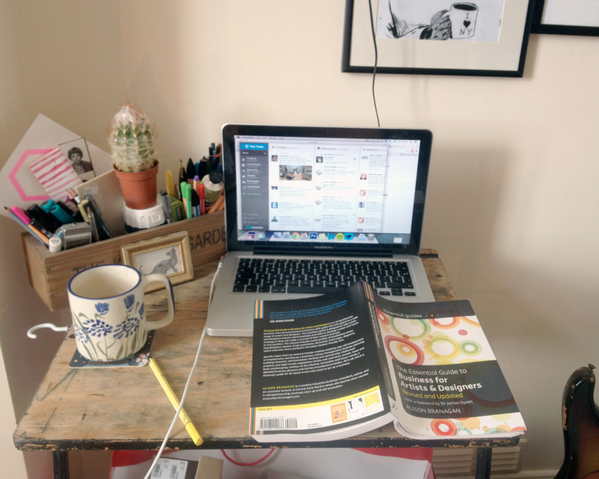CPD Training
Specialist Areas
My training style is a mixture of formal lecture, group exercises, and interactive role-play with informative handouts. Lecturing at varying levels with creative people and those whom have completed or are outside formal education that are seeking to develop an occupation or set up in business. Professional development is not about business start-up, its about early stage preparation for life after art college or for employment or enterprise.
 Professional Development
Professional Development
- Strategies in how to raise finance through sponsorship, trusts, art/design funding bodies, social media and self-initiated ventures such as street performance.
- Artistic/design statements (creative strategies), promotional, marketing copy, skills for creative employment.
- CVs, profile statements, covering letters, applications and preparing for interview, face-to-face & via webcam.
- Strategies for gaining, managing, documenting an exhibition or commission from first brief/proposal to realisation. How to approach galleries or agents
- Health and Safety awareness, including, signs, risks and hazards, basic risk assessment of a studio/workshop plan, COSHH, understanding of public liability insurance and good studio/workshop practice.
- Community Arts – an overview of provision – administrating and planning projects and workshops.

Presentation Skills
- Confidence and persuasion in public speaking in person and online.
- Vocal skills and structuring presentations creatively.
- Audience arrangements for impact and disability awareness.
There is a myth that when artists and designers leave college they are equipped with the necessary skills to pursue their practice and gain arts or design related opportunities or employment. Arriving into the world armed with a student portfolio and only knowledge of their own subject is foolhardy at best. Even I left Art School, to my great cost, with all the business acumen of a root vegetable. Graduates plunge, often chaotically into the world of applying for exhibitions, commissions, public and community arts, running workshops and teaching. Many creators, after suffering a number of rejections, can easily become demoralised and feel like giving up their arts, craft or design practice. This is why Professional Development is an important area that artists should explore – creatives from any generation leave college often with as little as 30% of the skills base they actually need to generate an income.
To gain a foothold in the commercial world, work in arts organisations, or lecture in universities, whether they are recent graduates or have been out of work for some time, will require learning new practical, managerial and administrative skills as well as the latest digital technologies.
Courses and workshops are offered at undergraduate/postgraduate levels and for creative people developing their practice who have completed their degrees some time ago.
If you would like to book Alison for a guest lecture or to run a workshop at your college or organisation, please contact her.
